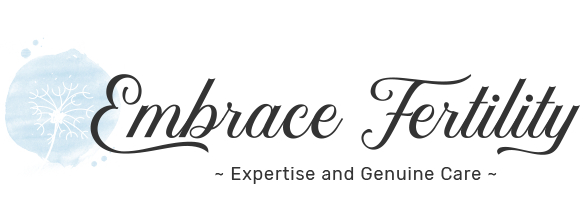What is endometriosis?
Endometriosis affects 1 in 10 people who menstruate. It is a condition that occurs when the tissue that lines the womb (the endometrium) grows outside the womb – usually in the pelvic cavity behind the womb or on the ovaries.
Many women don’t know they have endometriosis and may have seen other doctors for bowel related symptoms, bladder symptoms, back pain or headaches and fatigue. Often, they have been told by their families that period pain is normal and sometimes their female relatives have endometriosis but have not been diagnosed, so their symptoms are normalised.
Symptoms of endometriosis
The most common symptom of endometriosis is painful periods and often from a young age. Other symptoms can include heavy periods, spotting before a period, pain with intercourse, bladder pain, bowel pain, stabbing abdominal pain, headaches, nausea and fatigue.
People with painful periods have, on average, eight of these symptoms, so it can be difficult to know if endometriosis is the cause, or if it’s another condition that causes pelvic pain. Endometriosis can also cause fertility issues, which is sometimes how some patients discover they have the condition.
How is endometriosis diagnosed?
To diagnose endometriosis, a doctor needs to look for endometrial tissue in the pelvis through a laparoscope (a small telescope) inserted through the belly button while you are under anaesthetic, during a surgical procedure.
A small number of ultrasound specialists can perform scans that specifically look for endometriosis, which are accurate about 60% of the time. Endometriosis specialists can also sometimes see features that suggest endometriosis through MRI (Magnetic Resonance Imaging).
Is there a cure for endometriosis?
No, unfortunately, there is no cure, but endometriosis can be treated and symptoms can be managed. By speaking with an Adelaide endometriosis expert, you can find a plan to manage your illness. This plan might include a pelvic pain physiotherapist, a nutritionist, medication and a possible surgery to remove the endometriosis (excision).
Can I still have children if I have endometriosis?
The endometrium (lining of the womb) grows then breaks down in response to the cyclical changes in reproductive hormones. When the tissue breaks down it leaves the body as a period.
When the endometrial tissue is in the pelvic cavity (endometriosis) the tissue breaks down but it becomes trapped, as it can’t leave the body. Signals from dying cells in the tissue attract immune cells, which try to clear the tissue. This process creates an inflammatory environment and high levels of cellular stress as well as swelling and pain in the pelvic cavity.
Eggs, sperm and embryos have a much tougher job to stay healthy in this inflammatory environment and it is harder for them to create a pregnancy. Women with endometriosis can still conceive naturally, but it may take longer and if other factors (like a mild reduction in sperm quality) are present it can be even more difficult
Many people present with fertility problems, rather than pain, as their prominent symptoms. When unexplained fertility is a diagnosis, 80% of the time endometriosis will be present.
Luckily there are some fertility treatments available for endometriosis and you can read more about them here.
If you are seeking an endometriosis specialist in Adelaide, speak with the team at Embrace Fertility.
Even if you aren’t trying to conceive, or your years from starting your own family, the team at Embrace Fertility are experts in the condition.
One of Professor Louise Hull’s primary research interests is endometriosis and her formative papers investigating endometriosis have been well received internationally. She has been instrumental in setting the global and national direction of endometriosis treatment and research, having participated in many international consensus groups on endometriosis and being invited to the 2018 Round Table by the Australian Minister of Health to formulate a National Action Plan for Endometriosis.
Contact Embrace Fertility Adelaide today to talk about your endometriosis symptoms or existing condition.

